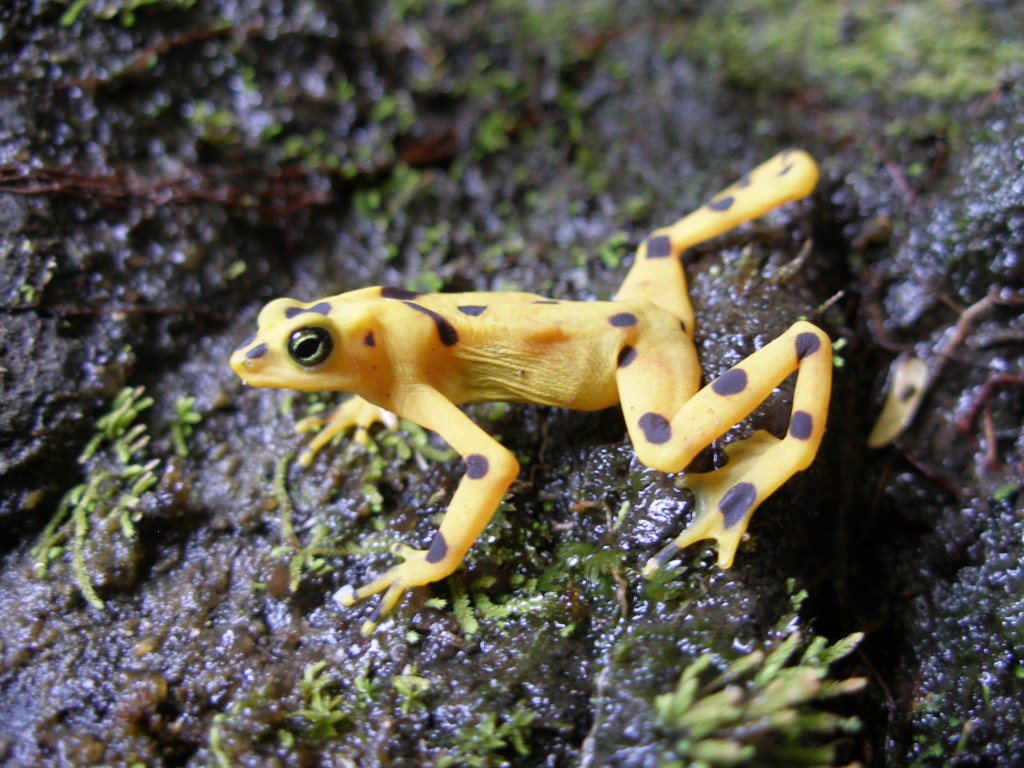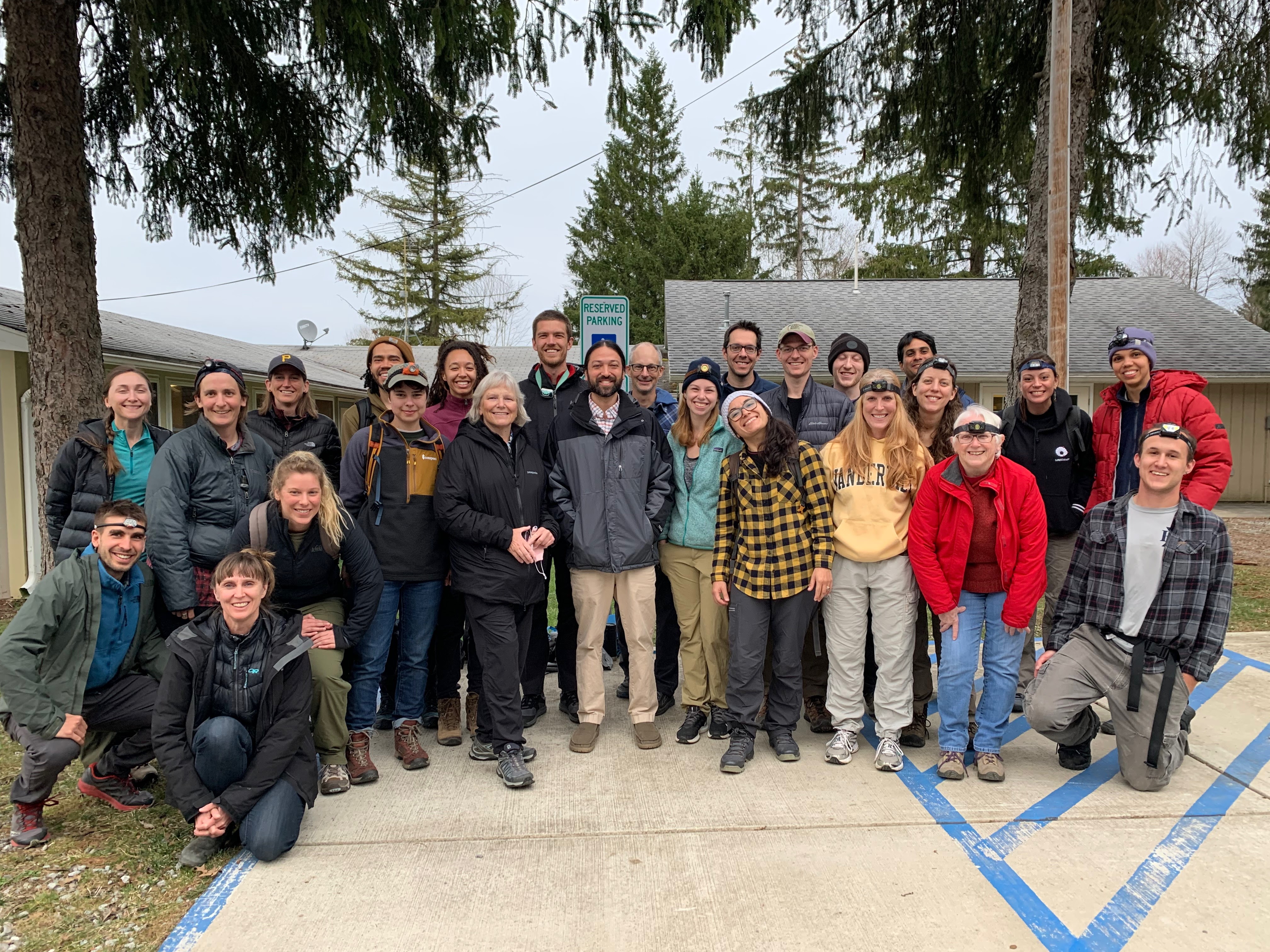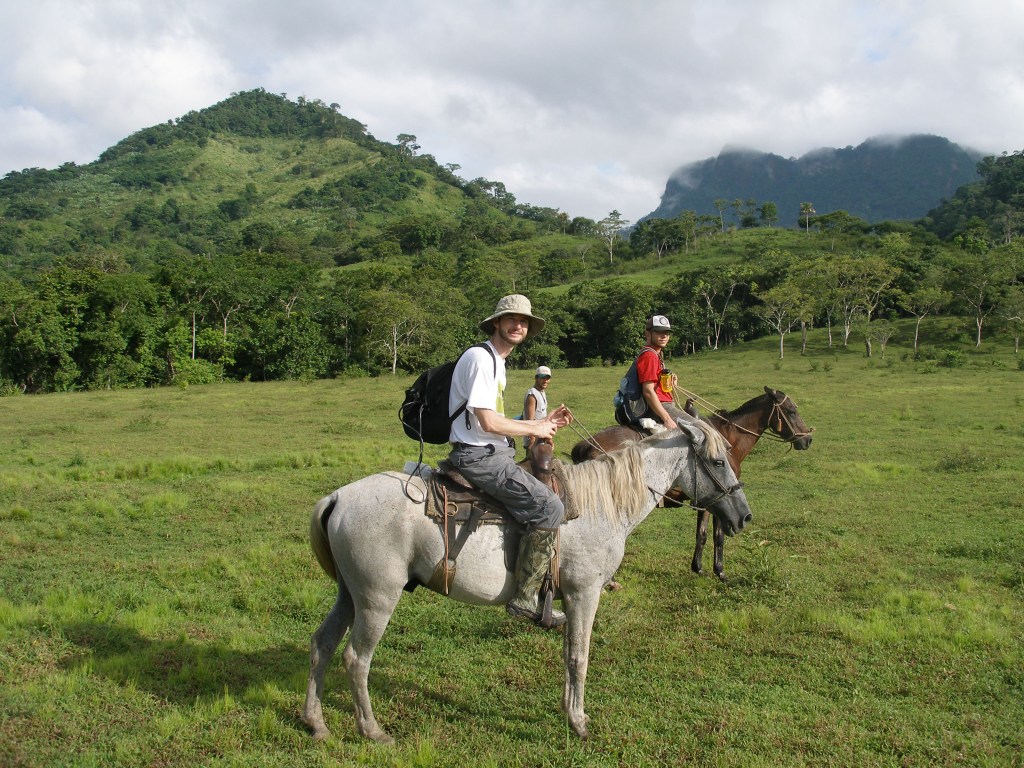
Resilience Institute Bridging Biological Training and Research
Uncovering Mechanisms of Resilience to Global Change
Leveraging a history of collaborative research and training across disciplines and scales in biology and a team science approach, we aim to uncover mechanisms of resilience to global change and train a new generation of truly integrative biologists.
RIBBiTR is a Biology Integration Institute, funded by the National Science Foundation to conduct research and training that integrates across sub-disciplines in the biological sciences to better understand how living systems achieve resilience to emerging infectious diseases and other global change stressors. The institute is comprised of researcher/educators from many universities, each with expertise in research and training relevant to the group’s focus on the amphibian disease, chytridiomycosis.
Disease Resilience
Field research teams in Panama, Brazil, and the USA are working to uncover mechanisms by which amphibian communities are achieving resilience to the disease caused by fungal pathogen Batrachochytrium dendrobatidis.
Institute News & Press
*New Publication* Reintroduction of resistant frogs facilitates landscape-scale recovery in the presence of a lethal fungal disease
Nature Communications 15, 9436. Knapp, R.A., Wilber, M.Q., Joseph, M.B., Smith, T.C., and Grasso, R.L. 2024.

Integrative Research
Amphibian physiology, immunity, microbiology, population genomics, population and community ecology.

Team Science
RIBBiTR team members work collaboratively to contribute to the core research and training missions of the institute.

Field Sites
Comparative field systems in Brazil, Panama, Pennsylvania, and California with contrasting histories of disease emergence and resilience.
